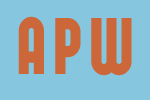Featured Guest Poet Sue Stanford
Haibun
I come from a country where butchered animals retain their heads. It is impossible to be vegetarian. My eyes, barely above the marble counter, watch as the man chops through bone. His sharp knife glides through flesh with a sweep that holds me in a shiver of wonder. He has muscular hands with rows of blond hairs which appear to be combed carefully in place, transfer larded lumps of red meat on to a sheet of something translucent, placed like an apron, in the centre of a piece of crisp white paper. Holding the complete artifact on the upraised tips of five fingers, he drops it to swing in the silver tray of the scales. At the moment of equilibrium, he announces the price, then deftly wraps meat and paper into a neat parcel. Coins are counted out and exchanged. Outside an early fall of snow forms a bloom on the pavement. It lightly powders our footprints where they point the way towards the shop door. The day is growing dark.
A sheep hangs in the butcher's window - christmas lights.
December, 1999
Sue Stanford's Questions:
1) Who is the persona? Is this convincing?
2) Does the poem move seamlessly from beginning to end?
3) Do any expressions seem unnecessarily awkward?
4) What does the poem seem to mean?
Well, to me the persona IS a vegetarian who pretends not to be one. I may be wrong, and am not sure because of "our footprints" in the final part of the Haibun. That "our" intrigues me so, probably I am wrong. Aside the persona, I enjoyed your piece; I have read some Haibuns and think your piece respects, so to speak, the rules. A single event in prose form but with some poetic devices. You use alliteration well. The read is smooth and the rhythm increases in the central part to slow down in the end. I don't know exactly what kind of message you want to convey but, surely, the cruelty of the butchering is striking. For a moment I thought those eyes were the animal's. If the piece is intended to discourage the killing of animals for food, it is convincing. I am not a vegetarian, but should I assist to such a scene I would not eat meat any more. Just reading your lines made me reflect. I can see that you closed the Haibun with a haiku; well, the number of syllables is not the standard one, but the essence of the haiku is present. If I had to cut anything, I'd drop " It is impossible to be a vegetarian". The desire to become one comes after this read. Thank you for this unusual, very interesting read and form.
Paula
Paula Grenside
Italy - Tue Dec 21 13:37:17 1999
I agree with Paula that this is a smooth and seamless read. I found myself having a flashback to my childhood when butchers did business this way. The description of the meat and the use of words like apron to describe the paper that would wrap the meat connects the object of the meat to the butcher. I don't quite know what you want to say here, but it is very effective in giving the reader a description of the whole butcher shop. The only part that I found a little jarring was the sheep hanging in the window with the words Christmas lights right after it. I think that it is overkill to put in the sheep. Do you mean that the sheep is like Christmas lights for that shop, or do you mean that the sheep is adding to the display of christmas lights? Otherwise I enjoyed reading this, and I suppose that it has a message of vegetarianism, but I think that it works better as a little vignette. You don't need to say much more about the vegetarianism.
Barbara Ehrentreu
NY USA - Thu Dec 30 02:09:17 1999
The persona is the butchered sheep, though it is little ambiguous. Its head (soul), lying on the marble, is watching all this happening. People in that country think, "It is impossible to be vegetarian". But , ironically, a sheep is a vegetarian ( I mean herbivorous), probably brought from some other place where it is bred. The sheep, after its death, is still experiencing its own butchering by the muscular hands that were the result of eating flesh. There is a link between the muscle of his hand and flesh of the sheep. The footprints are of the sheep driven to the butcher's shop. Death is darkness. Death hangs among the lights.
Rathnashikamani Bijja
India - Sat Jan 8 02:58:03 2000
The white snow "blooming" like blood, which becomes a path is very strong.I agree that it is a veggie statement. Didn't invoke any guilt in me. The use of the word artifact to describe the meat felt wrong. The whole sentence regarding the hands actions is too long. The eyes watching it's own disection was the strongest element.
Chris Butler
Canada - Wed Jan 12 16:16:50 2000
For me, the poem speaks of the tenuous threads that connect all of us to the world of the "living." The child looks through the window as if viewing an execution, one which is oddly a part of the daily rhythm, a brutal act carried out calmly and without passion (equalibrium). The viewer is transfixed, as is the reader. As Conrad puts it--there is a "fascination with the abomination." In a way, it seems to be a coming-of-age poem: The moment when the world presents itself vividly "as is",without embelishment or romance. The veil is lifted, and the child is confronted. The footsteps are frozen,the doorway to this new world (the shop?) is entered. The unlikely paring of christmas lights (rebirth) and a carcass intermingle in the window--the greatest puzzle of life.
christine crockett
USA - Thu Jan 13 21:27:11 2000
